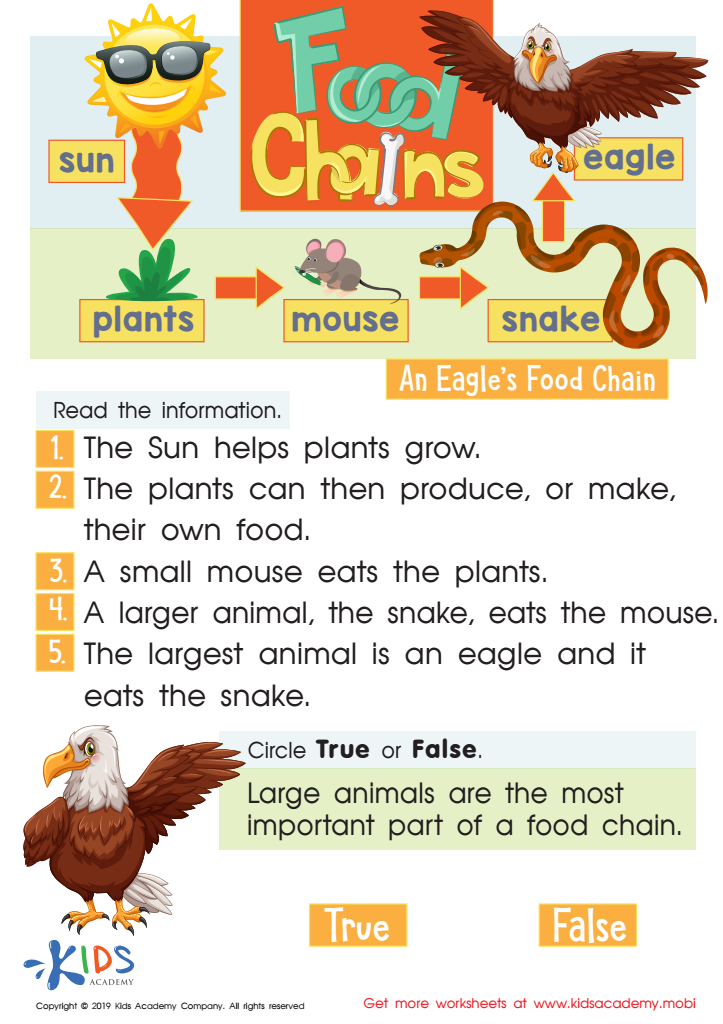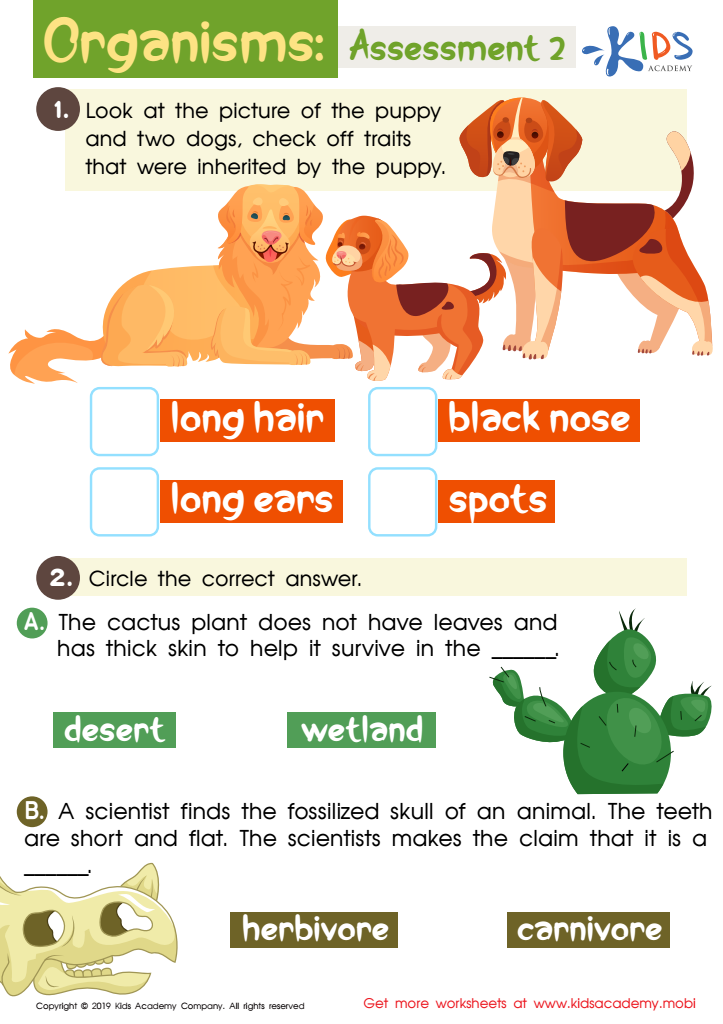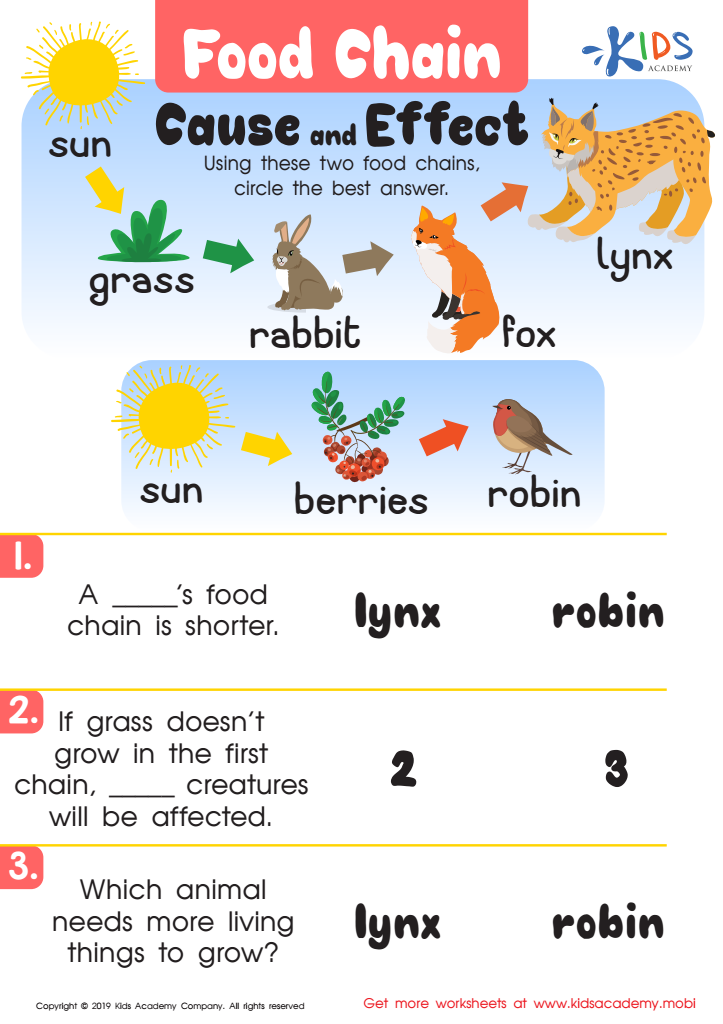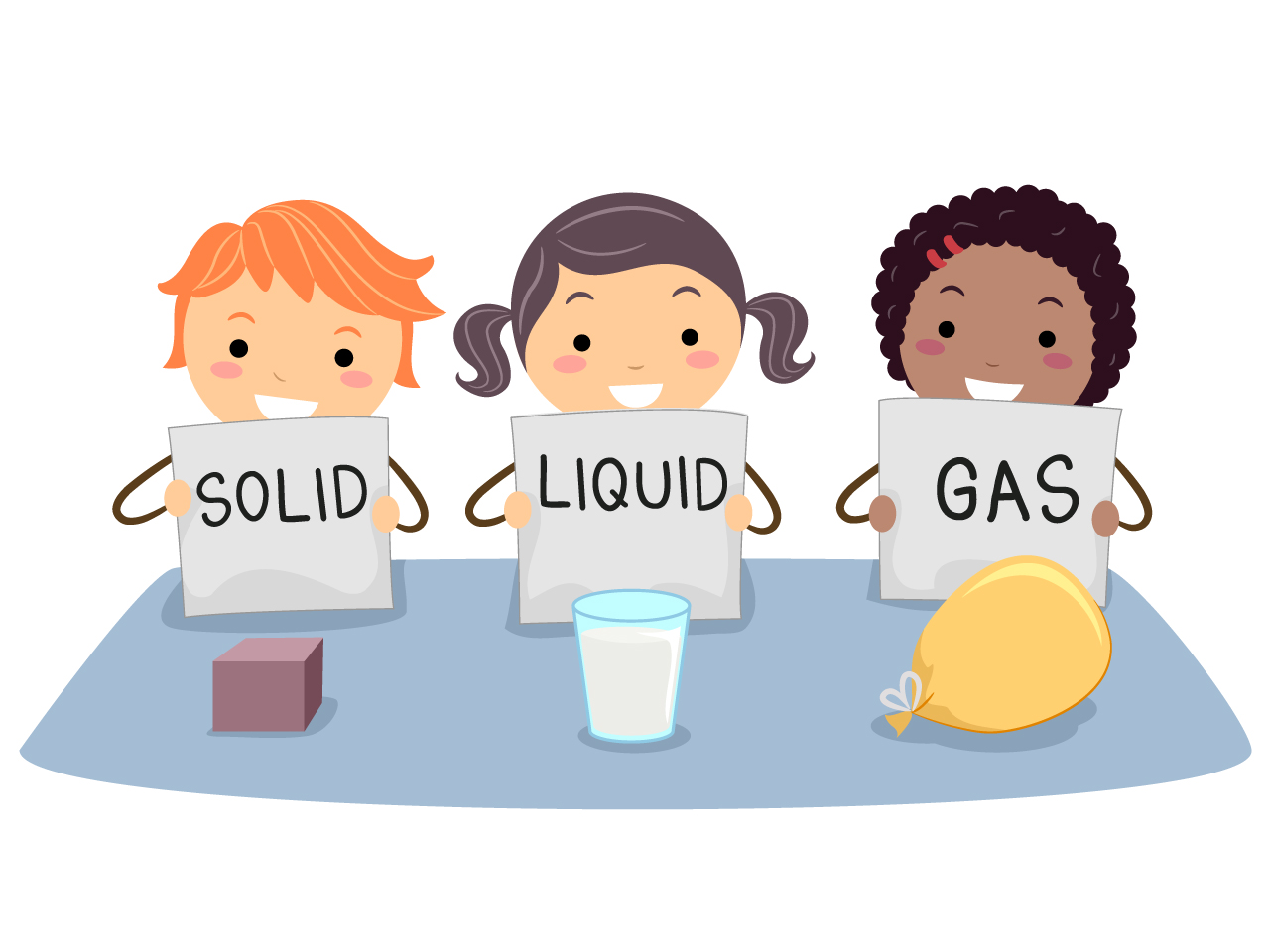Understanding food chains Science Worksheets for 8-Year-Olds
3 filtered results
-
From - To
Explore the fascinating world of food chains with our engaging science worksheets designed specifically for 8-year-olds! These interactive resources help young learners grasp the essential concepts of ecosystems and the relationships between producers, consumers, and decomposers. Through colorful visuals, fun activities, and easy-to-understand explanations, children will learn how energy flows through different organisms in nature. Our worksheets promote critical thinking and observation skills while making science fun and accessible. Whether used in the classroom or at home, these materials will spark curiosity and foster a deeper understanding of environmental science. Start your child's journey into the ecological web today!


Food Chains Worksheet


Organisms: Assessment 2 Worksheet


Food Chain Cause Worksheet
Understanding food chains is essential for 8-year-olds as it lays the foundation for their comprehension of ecosystems and the interdependence of living organisms. Parents and teachers should care because this knowledge fosters curiosity about the natural world, encouraging children to explore and inquire about how life functions around them.
Food chains illustrate how energy and nutrients flow from one organism to another, emphasizing the roles of producers, consumers, and decomposers. By grasping this concept, children learn the importance of biodiversity and the balance necessary for healthy ecosystems. This understanding can cultivate a sense of responsibility towards the environment, promoting sustainable behaviors that can impact future generations.
Additionally, when children learn about food chains, they also enhance their critical thinking and problem-solving skills through the study of life processes and relationships among organisms. They can apply this knowledge to real-world situations, such as the impact of pollution or habitat destruction on local wildlife.
Incorporating discussions about food chains into everyday learning enriches children's education, making science more relatable and dynamic. Helping children understand these basic principles at an early age paves the way for more advanced ecological concepts in the future, ultimately ensuring they grow into informed and environmentally-conscious citizens.

 Assign to My Students
Assign to My Students







.jpg)











